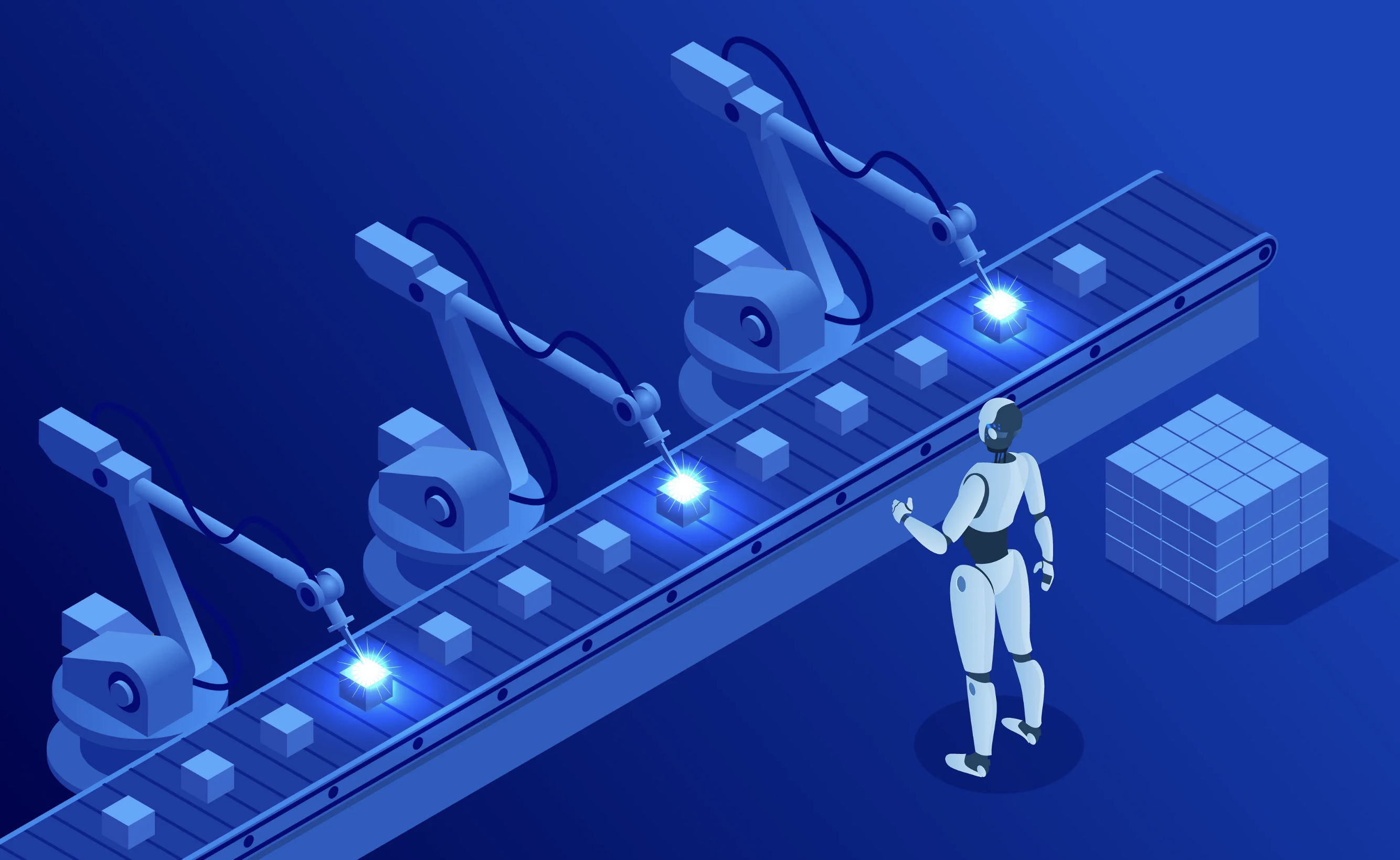
Research Whitepapers
Transforming Workforce Automation with AI
Introduction
Artificial Intelligence (AI) is revolutionizing workforce automation by enabling businesses to optimize processes, enhance productivity, and drive innovation. By automating repetitive tasks, analyzing large datasets, and offering intelligent decision-making support, AI empowers organizations to focus on strategic goals while reducing operational costs. From robotic process automation (RPA) to AI-driven chatbots and predictive analytics, the adoption of AI in workforce automation is reshaping industries across the globe. Companies like Microsoft, Amazon, and UiPath leverage cutting-edge AI technologies to streamline workflows and unlock new opportunities. This paper explores the services, features, technologies, and real-world implementations of AI in workforce automation.

Services
AI-driven workforce automation delivers a range of services designed to improve operational efficiency and drive intelligent decision-making:
- Task Automation Through Robotic Process Automation (RPA)
Platforms like UiPath and Automation Anywhere utilize AI to automate repetitive, rule-based tasks such as data entry, invoice processing, and email responses. By mimicking human actions, RPA reduces errors and accelerates workflow completion. - AI-Powered Predictive Analytics
AI systems, including those provided by IBM Watson and Google AI, analyze historical data to forecast future trends. These insights help businesses optimize supply chains, anticipate customer demands, and manage workforce scheduling efficiently. - Natural Language Processing (NLP) for Communication
AI-driven NLP tools like OpenAI's GPT and Google Dialogflow enable the creation of intelligent chatbots and virtual assistants. These systems streamline customer service, handle employee queries, and support internal communications. - Computer Vision for Quality Control and Surveillance
Platforms like Amazon Rekognition and Microsoft Azure Cognitive Services use computer vision to automate quality control processes, monitor workplace safety, and detect anomalies in real-time. - Process Optimization with Machine Learning
AI platforms such as TensorFlow and PyTorch enable organizations to implement machine learning models that optimize workflows. These systems adapt to changing conditions and improve efficiency over time. - Document Automation with Intelligent Document Processing (IDP)
Tools like Hyperscience and ABBYY FlexiCapture automate the extraction, classification, and validation of data from documents. These systems reduce manual intervention in document-heavy processes such as HR, finance, and legal.
Technologies
The technological ecosystem driving AI-powered workforce automation combines advanced algorithms, cloud platforms, and machine learning frameworks:
- Machine Learning Frameworks
Technologies like TensorFlow, PyTorch, and Scikit-learn power predictive models, pattern recognition, and adaptive learning in automated systems. - Natural Language Processing (NLP)
NLP technologies, including SpaCy and Hugging Face Transformers, facilitate the understanding of human language. These systems enable chatbots, virtual assistants, and sentiment analysis tools. - Computer Vision for Automation
Computer vision frameworks like OpenCV and AI APIs such as Google Vision AI process visual data for tasks like defect detection, object recognition, and surveillance automation. - Robotic Process Automation Platforms
Tools like UiPath and Automation Anywhere integrate seamlessly with AI models to automate workflows, combining the speed of RPA with the intelligence of machine learning. - Cloud Computing Platforms
Cloud platforms like Microsoft Azure, Google Cloud AI, and AWS provide scalable infrastructure for deploying AI models and handling large-scale data processing. - Data Processing Pipelines
Tools like Apache Kafka and Apache Airflow enable real-time data streaming and pipeline orchestration, ensuring seamless data flow for AI-driven automation systems.
Features
AI-based workforce automation offers an array of powerful features that enhance productivity, accuracy, and scalability:
- Cognitive Automation for Advanced Decision-Making
AI-driven systems analyze unstructured data, such as emails, documents, and customer reviews, to provide actionable insights. Cognitive automation tools like Blue Prism enable businesses to automate complex decision-making processes. - Real-Time Data Analysis and Reporting
AI platforms such as Tableau AI integrate machine learning capabilities to analyze data in real time, generating dashboards and reports that offer actionable insights for managers and stakeholders. - Intelligent Workflow Orchestration
AI orchestrates workflows by integrating multiple tools and automating end-to-end processes. Platforms like Zapier and Integromat leverage AI to synchronize data, trigger workflows, and enhance process efficiency. - Personalized User Experiences
AI systems like Adobe Sensei tailor employee and customer experiences based on behavioral data. For example, AI can personalize training programs or recommend relevant knowledge articles. - Scalability for Growing Operations
AI-powered systems, such as AWS AI services, can scale dynamically to handle increased workloads. This feature is particularly valuable for businesses experiencing rapid growth or seasonal demand spikes. - Error Reduction and Quality Assurance
By automating repetitive and error-prone tasks, AI minimizes human mistakes. Systems like WorkFusion ensure accuracy in data entry, processing, and compliance monitoring.
Conclusion
AI-driven workforce automation is revolutionizing how organizations operate by streamlining processes, enhancing decision-making, and fostering innovation. Technologies such as UiPath for robotic process automation, Dialogflow for NLP-driven chatbots, and AWS AI services for scalable machine learning solutions are at the forefront of this transformation. By integrating AI into workflows, businesses can reduce costs, improve accuracy, and unlock new opportunities for growth. As the adoption of AI continues to expand, it is poised to redefine the future of workforce management, empowering organizations to achieve unprecedented levels of efficiency and productivity.
Let’s Connect
At NextGen Coding Company, we’re ready to help you bring your digital projects to life with cutting-edge technology solutions. Whether you need assistance with AI, machine learning, blockchain, or automation, our team is here to guide you. Schedule a free consultation today and discover how we can help you transform your business for the future. Let’s start building something extraordinary together!